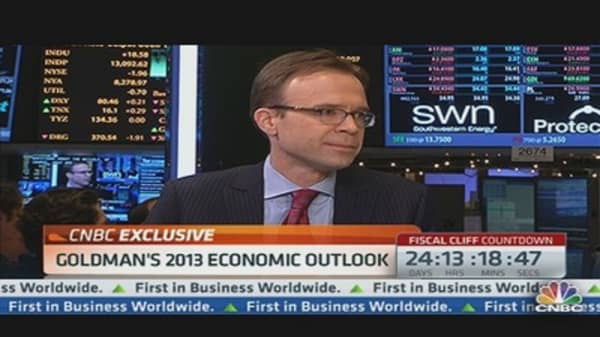In October, the jobs recovery finally showed signs of gaining traction. But in November, it looked like it was doing little more than spinning its wheels.
On its face, the first post-presidential election non-farm payrolls report provided reason for optimism: A better-than-expected 146,000 new jobs and a drop in the unemployment rate to 7.7 percent, its lowest level since December 2008.
But as it so often does, a look under the hood showed things weren't so rosy as they appeared. (Read More: Morici: Unemployment Rate Falls: More Quit Looking)
The October gain of 171,000 had been shaved all the way down to 138,000, and even a seemingly positive November number displayed some fundamental weakness.
"The stronger than expected monthly jobs report for November is good news, but jobs still elude the long-term unemployed and unemployment overall is still hammering millions of Americans," Christine Owens, executive director of the National Employment Law Project, said in a statement.
The group has been lobbying Congress to continue to provide 99 weeks of benefits to the 12 million Americans counted as unemployed, reasoning that the economy is still too fragile to reduce the program.
Friday's non-farm payrolls report gave the group little reason to change its position.
Though the total net job creation was substantially better than expectations, it essentially was in line with the meager average of 151,000 a month through 2012.
Also, more people quit looking for work, and the average duration of unemployment was at 40 weeks, near historic highs.
"The underlying details indicate a decline in the unemployment rate for the wrong reasons," Nomura Securities economists said in an analysis.
Buoyed by the notion that Superstorm Sandy did not impact the economy as negatively as expected, the stock market moved mostly higher though technology shares were weak.





